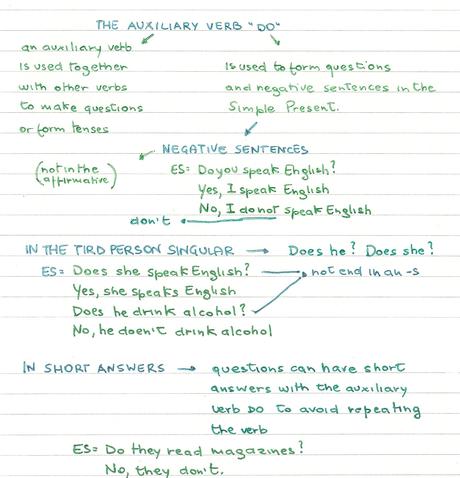
Today we are going to look at an important auxiliary verb in English: the verb do.
Oggi studieremo un importante verbo ausiliare in inglese: il verbo "do".
We use the auxiliary verb do in negative sentences, questions and short answers for most verbs (except for the verbs "be" and "have got" and also modal verbs) in the Present Simple. Remember that in the third person singular we use does.
Usiamo il verbo ausiliare "do" nelle frasi negative, nelle domande e nelle risposte brevi con la maggior parte dei verbi al Present Simple (ad eccezione dei verbi "be", "have got" e dei verbi modali). Ricorda che per la terza persona singolare si usa "does".
Let's take a look at the use of do in questions, short answers and negative sentences.
Diamo un'occhiata all'utilizzo di "do" nelle domande, nelle risposte brevi e nelle frasi negative.
QUESTIONS and SHORT ANSWERS:
* Do you like to study English? Yes, I do.* Does she go to the same school as you? No, she doesn't.
* He doesn't like to play football.* John doesn't enjoy school very much.* I play the piano but I don't play the guitar.* They don't eat pizza very often.
Loro non mangiano spesso la pizza
Suono il piano ma non la chitarra.
A John non piace tanto la scuola.
A lui non piace giocare a calcio. Lei va alla tua stessa scuola? No. Ti piace studiare l'inglese? Sì.
NEGATIVE SENTENCES:

